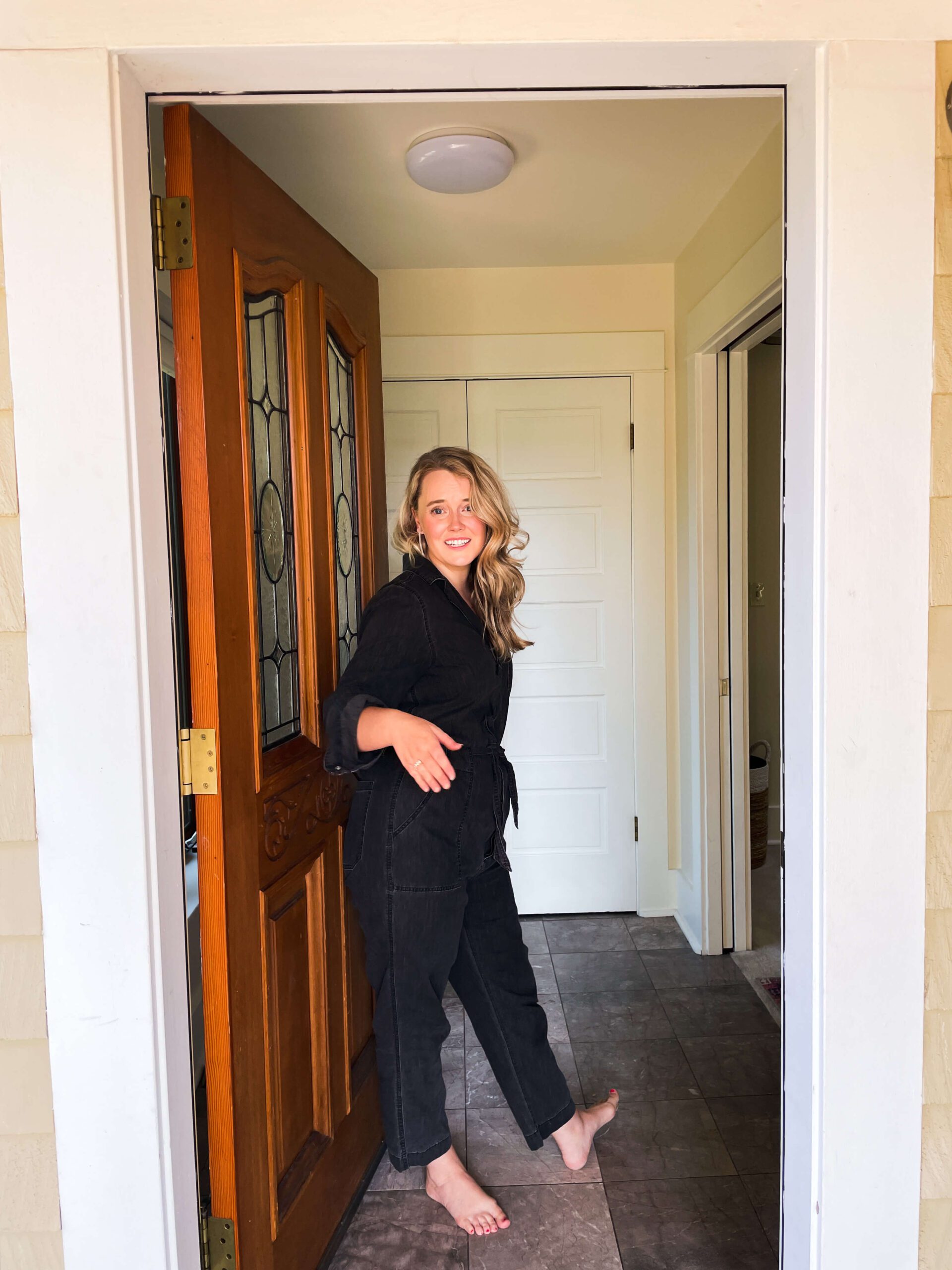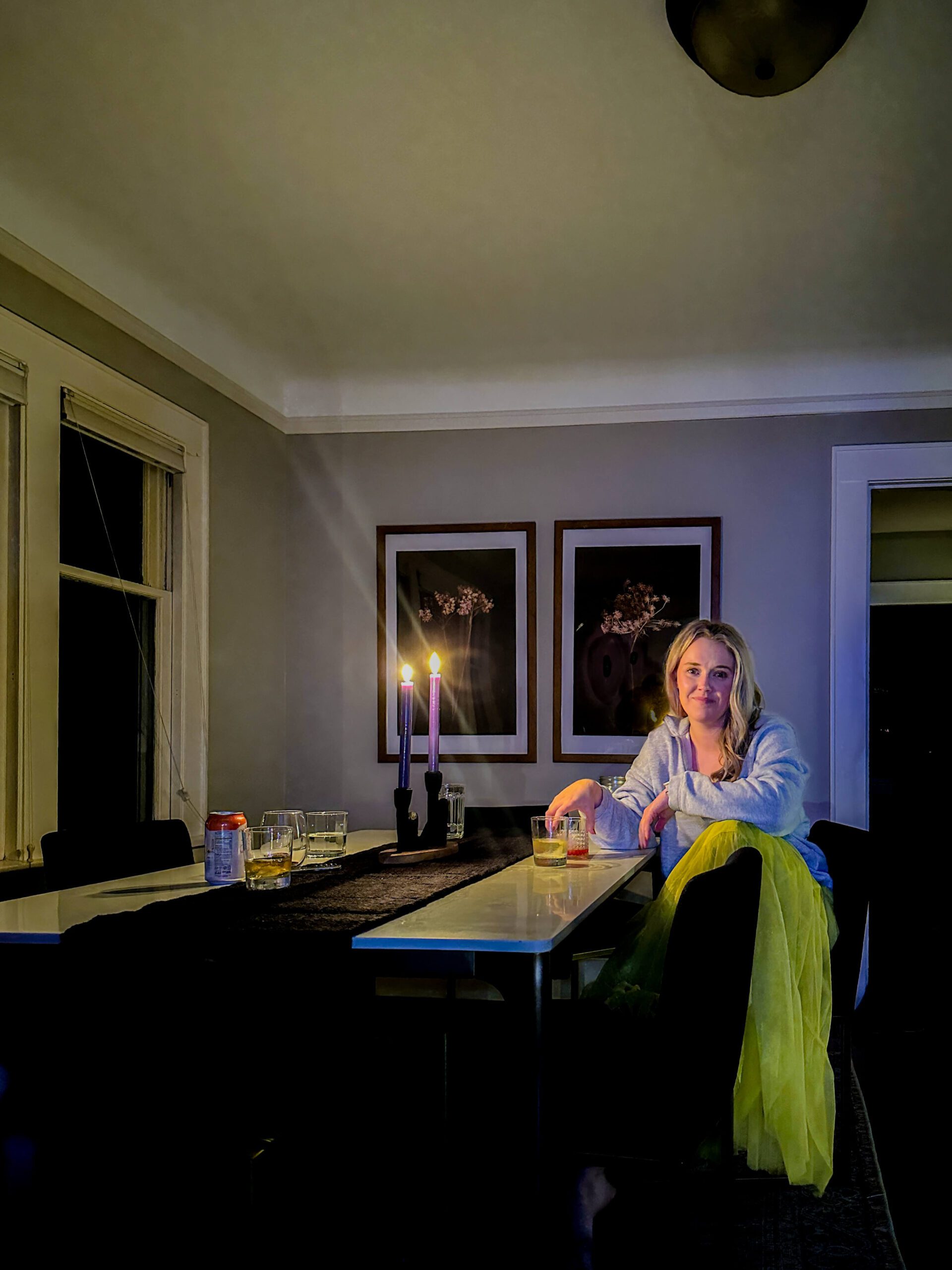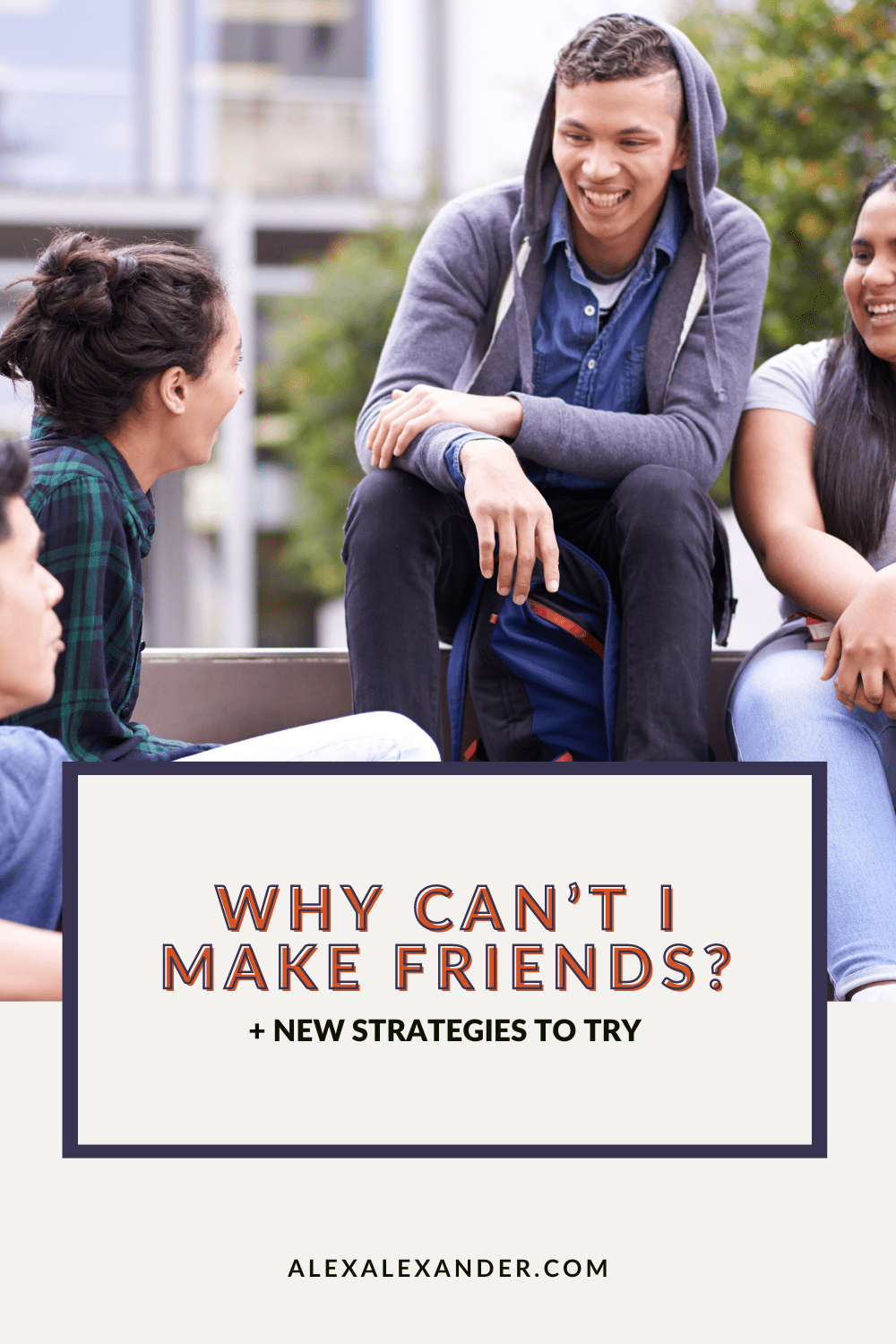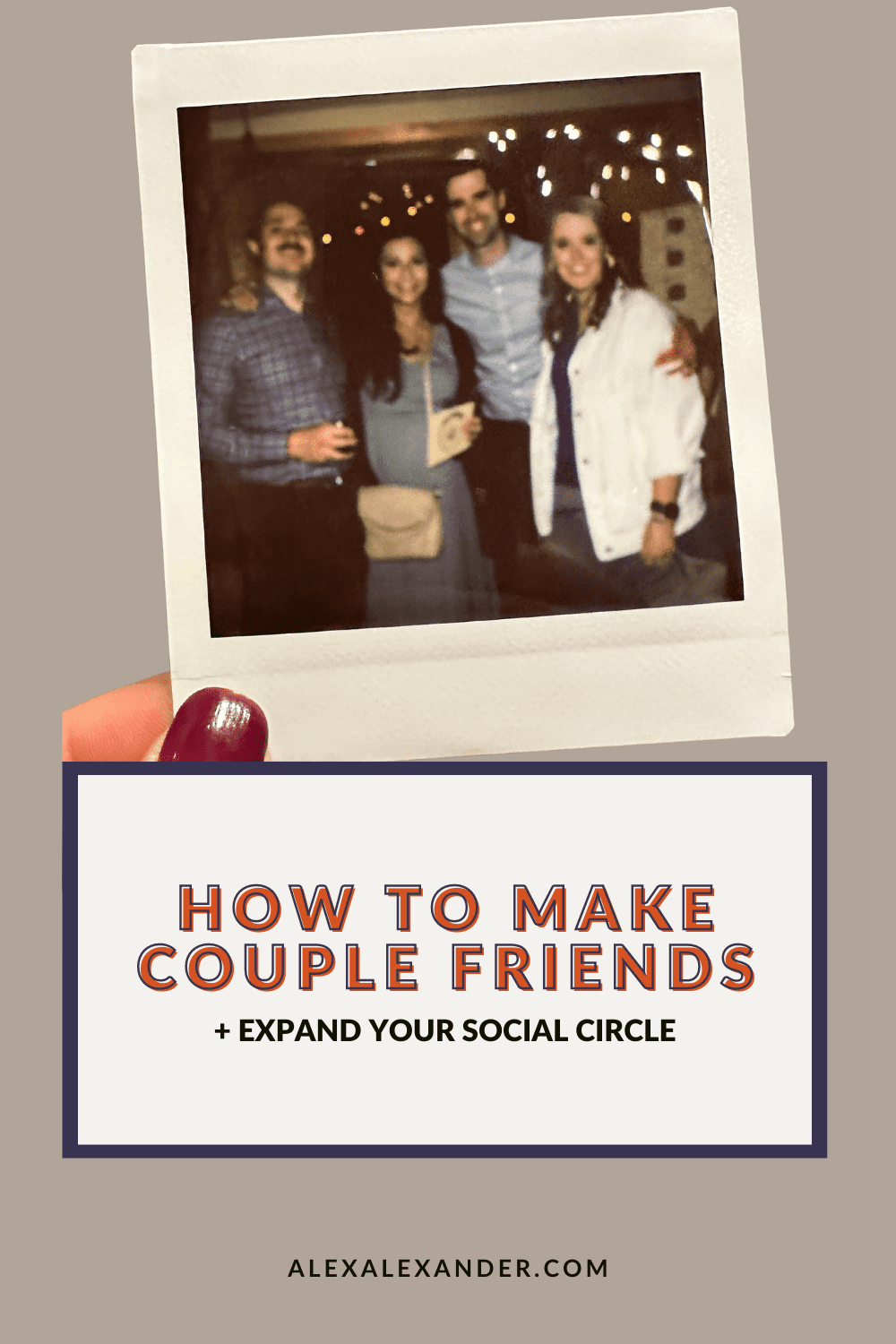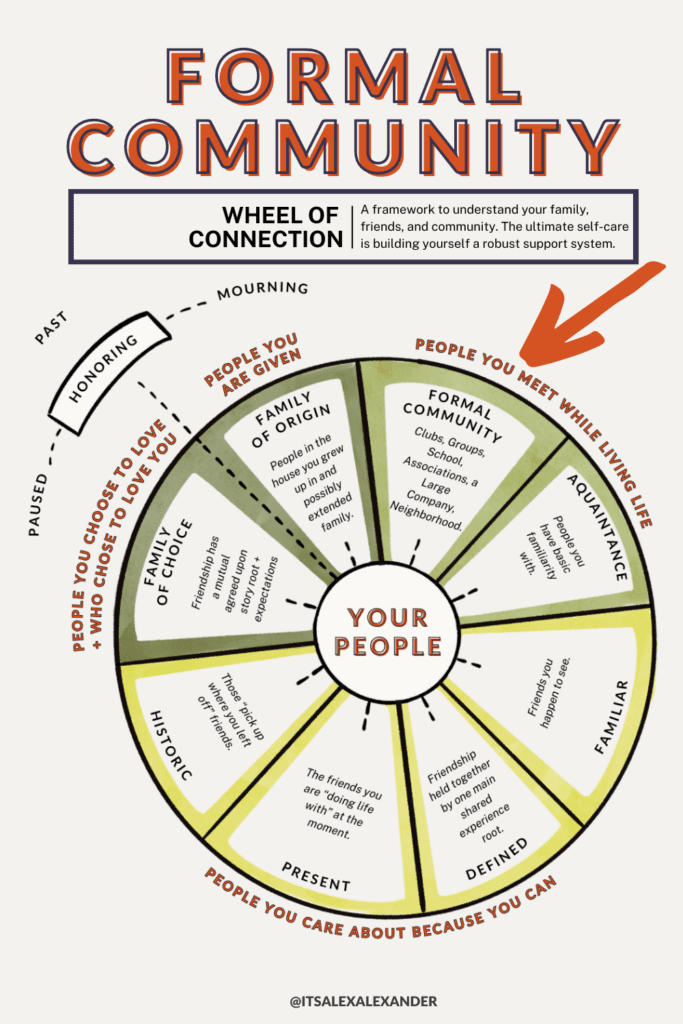
- Formal Community Basics
- Formal Community Examples
- The Importance of Formal Communities
- Developing Roots within Formal Communities
- Building Strong Ties in Formal Communities
- Virtual Formal Communities
- Final Thoughts
Formal communities play a crucial role in our lives, serving as spaces where people come together, work towards common goals, share interests, and connect. By actively participating in a formal community, we open ourselves up to opportunities for personal growth, learning, and social connections. In this article, we will delve into the significance of formal communities and explore why these often underappreciated groups in our Wheel of Connection that contributes to our overall well-being.
Formal Community Basics
At their core, formal communities are groups or organizations that members actively participate in at a personal level to further their goals or immerse themselves in a particular interest. These communities often have a structured setup, including leadership teams, scheduled meetings, and rules and regulations. By joining a formal community, individuals can meet new people and find shared meaning in pursuing a common objective.
Community Typologies
We can classify communities by the purpose of bringing members together:
- Interest. Communities of people who share the same interests or passions.
- Action. Communities of people trying to bring about societal change or personal change.
- Place. Communities of people brought together by geographic proximity.
- Practice. Communities of people involved in the same activities, in the same industry, or invested in the same learning path.
- Circumstance. Communities of people brought together by external events/situations such as illness, loss
- Identity – Communities of people brought together by a part of their identity such as race, sexual orientation, or neurotype.
Another way to categorize communities is by identifying them by size:
- Individuals
- Microsystems – families, friend groups, coworkers, classmates
- Organizations – Schools, Workplaces, places of worship
- Localities – Geographic proximity
- Macrosystems – Cultures, societies, belief systems, social movements.
Since formal communities are groups that come together to work towards a common goal, I prefer to categorize them by their purpose, but both are necessary to the various types of communities.
Examples
Communities can be found in various areas of our lives. Here are some common examples:
- Education: Schools, colleges, and universities
- Work: Professional organizations, networking groups, and industry associations
- Religion and Faith: Places of worship and religious organizations
- Health and Fitness: Fitness clubs, running clubs, and sports leagues
- Community Engagement: Non-profit organizations, homeowners associations, Parent-Teacher Associations (PTA), local governments, and neighbors, interest groups such as those you might find on Meetup.com
The Importance of Formal Communities
Formal communities offer several benefits that enhance our lives. They provide a sense of social satisfaction, as working together with others towards a shared goal brings a sense of fulfillment and accomplishment. These communities also offer excellent platforms to meet like-minded individuals with similar interests and passions, making it easier to strike up conversations and form connections.
Many formal communities work towards causes that contribute to the advancement of society as a whole, driving social progress. The shared passion among members brings a sense of joy and belonging, while the structured environment removes the burden of scheduling or initiating activities, making it easier for individuals to participate and engage.
Benefits
- Social Satisfaction: Working together with others towards a shared goal brings a sense of social fulfillment and accomplishment.
- Opportunities to Meet New People: Formal communities provide an excellent platform to meet like-minded individuals with similar interests and passions who might be potential new friends.
- Driving Social Progress: Many formal communities work towards causes that contribute to the advancement of society as a whole.
- Immediate Shared Interests: The mission and shared goals of a formal community create an immediate connection and make it easier to strike up conversations with fellow members.
- Structured Environment: Formal communities often have established structures, removing the burden of scheduling or initiating activities, making it easier for individuals to participate and engage.
- Shared Passion: Connecting with others who are equally passionate about a shared interest brings a sense of joy and belonging.
- Proximity and Connection: Formal communities’ consistent meeting schedules create proximity among members, facilitating deeper connections and being great places to potentially make new friends.
Developing Roots
Within formal communities, you create various roots with the people you meet and the overall community that leave you feeling connected:
- Shared Experience Roots: The primary roots within formal communities are shared experience roots. Regular interactions and engagement through the community’s structure foster strong bonds among members.
- Emotional Intimacy Roots: Emotional intimacy roots may be limited in communities unless the group focuses on sensitive topics such as grief support or substance abuse. In contrast, emotional intimacy roots are more prevalent within our family of origin.
- Story Roots: While individual story roots may not be significant, a sense of belonging and understanding can develop at a collective level. The belief that “I belong here” or “These people understand me” forms a story root within the group.
Building Strong Ties
Within communities, different roots contribute to the development of connections and shared experiences. The primary root is shared experiences, as regular interactions and engagement through the community’s structure foster strong bonds among members. Emotional intimacy roots may be limited unless the group focuses on sensitive topics, while story roots can develop at a collective level, creating a sense of belonging and understanding.
To truly experience the benefits of formal communities, it’s essential to invest in relationships within these groups. Merely participating in activities without connecting with others can lead to a sense of loneliness, despite being surrounded by people. Engaging with fellow members, initiating conversations, and fostering meaningful connections are crucial to fulfilling our relationship needs.
Virtual Formal Communities
In today’s digital age, virtual communities have become increasingly relevant and impactful. Virtual shared experience roots can be just as powerful as in-person connections, and these communities are vital for marginalized groups such as neurodivergent people, the disabled community, and the chronic illness community.If you are interested in making more connections virtually, read this article about how to find friends online.
Final Thoughts
Formal communities provide valuable platforms for personal growth, social connections, and shared goals. By actively participating in these communities and investing in relationships within them, we can meet new people, expand our horizons, and contribute to causes that matter to us. Whether in-person or virtual, the power of formal communities in our lives should not be underestimated.
Dive deeper into the Wheel of Connection Framework and discover the importance of the various connections in our life including our family of origin, chosen family, and the various kinds of friends in our life. Start your journey towards a more connected and fulfilling life today!

